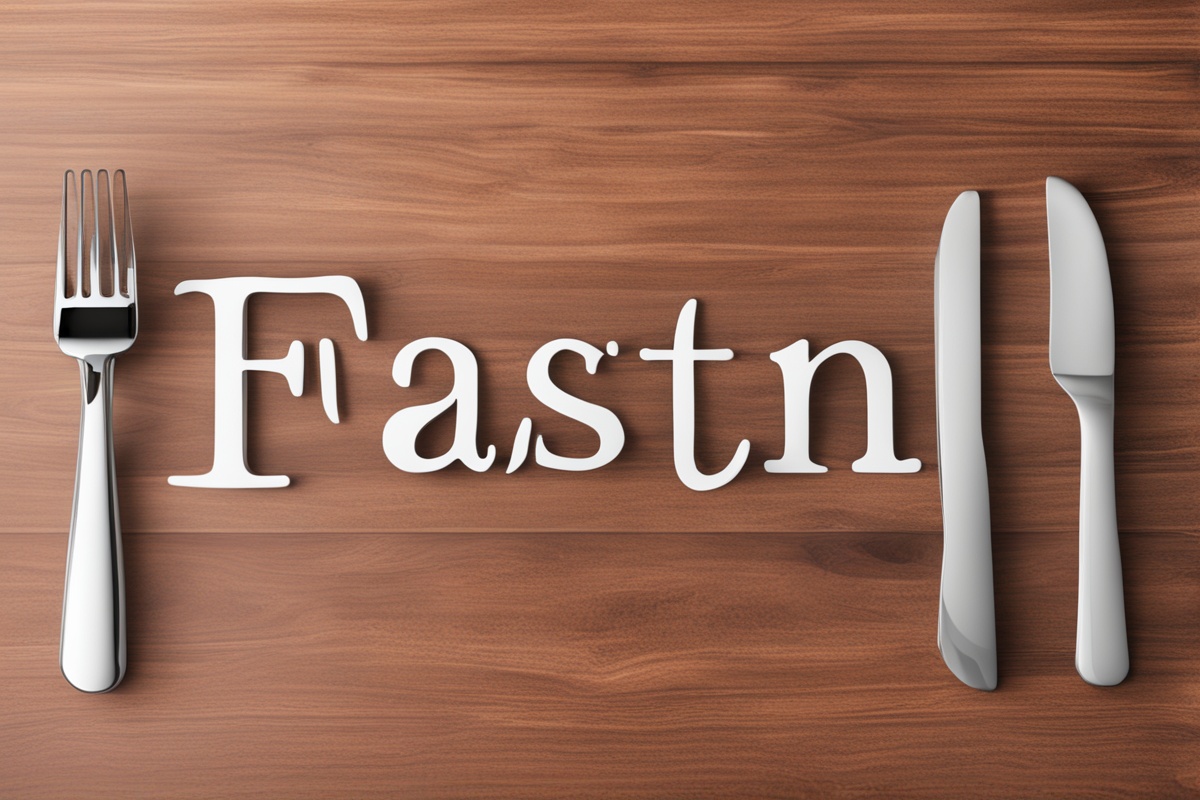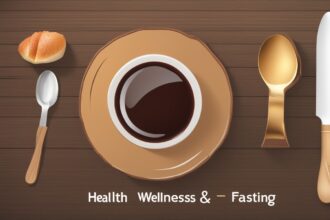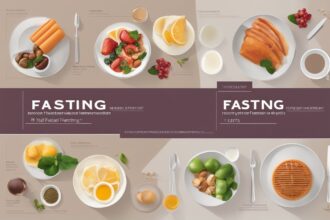Hey there, health enthusiasts! If you’ve ever wondered whether skipping a meal or two could do more than just shrink your waistline, you’re in for a treat. Fasting, a practice as old as humanity itself, has surged in popularity thanks to its promising health benefits of fasting. From ancient spiritual rituals to modern science-backed wellness trends, fasting is no longer just about discipline—it’s a powerful tool for improving physical and mental well-being. In this deep dive, we’ll explore what fasting does for your body and mind, unpack the science behind it, and share actionable tips to help you get started safely. Let’s uncover why fasting might just be the health hack you’ve been searching for!
What Is Fasting, and Why Does It Matter?
Fasting is the voluntary abstinence from food and, sometimes, drink for a specific period. It’s not a new fad—humans have fasted for centuries, whether for religious reasons, like during Ramadan or Lent, or due to food scarcity in ancient times. Today, fasting has evolved into structured approaches like intermittent fasting (IF), time-restricted eating, and extended water fasts. But why all the buzz around the health benefits of fasting? Science is finally catching up to what many cultures have known for ages: giving your digestive system a break can trigger profound changes in your body, from cellular repair to improved metabolism (Mattson et al., 2017). Whether you’re looking to shed pounds, boost brainpower, or simply feel more energized, fasting offers a versatile approach to wellness.
Physical Health Benefits of Fasting: What Science Says
Let’s get into the nitty-gritty of how fasting transforms your body. One of the most well-documented fasting health advantages is its impact on weight loss and metabolism. When you fast, your body switches from burning glucose (from food) to burning stored fat for energy—a state called ketosis. Studies show that intermittent fasting can lead to significant reductions in body weight and fat mass, especially when paired with a balanced diet (Patterson & Sears, 2017). But the perks don’t stop at weight management. Fasting also improves insulin sensitivity, which is a game-changer for managing blood sugar levels and reducing the risk of type 2 diabetes (Barnard et al., 2019).
Beyond that, fasting triggers autophagy—a cellular “clean-up” process where your body recycles damaged cells and proteins. This mechanism is linked to longevity and a lower risk of chronic diseases like cancer and Alzheimer’s (Rubinsztein et al., 2011). Even heart health gets a boost, as fasting has been shown to lower blood pressure, cholesterol, and inflammation markers (Tinsley & La Bounty, 2015). These fasting wellness benefits aren’t just theoretical—they’re backed by growing research that highlights fasting as a natural way to support overall health.
Mental and Emotional Gains from Fasting
fasting isn’t just about the body; it’s a mental reset too. Ever noticed how skipping a heavy meal can leave you feeling lighter—not just physically, but mentally? There’s science behind that. Fasting promotes the production of brain-derived neurotrophic factor (BDNF), a protein that supports brain health, enhances learning, and may even protect against depression (Mattson et al., 2017). Many people report sharper focus and mental clarity during fasting periods, likely due to stabilized blood sugar and reduced brain fog.
Emotionally, fasting can foster mindfulness. When you’re not distracted by constant snacking, you become more aware of hunger cues and your relationship with food. This can help break unhealthy eating patterns and build a sense of self-discipline. While more research is needed, early studies suggest that fasting might even reduce symptoms of anxiety by regulating stress hormones (Fond et al., 2013). So, if you’re seeking mental health benefits of fasting, this practice could be a surprising ally.
Types of Fasting: Finding What Works for You
Not all fasting is created equal, and that’s a good thing—it means there’s a style for everyone. Whether you’re a beginner or a seasoned faster, understanding the different approaches can help you tap into the health benefits of fasting without feeling overwhelmed. Here are some popular methods to consider:
- Intermittent Fasting (IF): This involves cycling between eating and fasting periods, like the 16/8 method (fast for 16 hours, eat during an 8-hour window). It’s flexible and beginner-friendly.
- Time-Restricted Eating: Similar to IF, this focuses on eating within a specific daily window, often 10–12 hours, to align with your body’s circadian rhythm.
- 5:2 Diet: You eat normally for five days of the week and restrict calories (around 500–600) on two non-consecutive days. It’s less about timing and more about calorie control.
- Water Fasting: A more intense approach where you consume only water for 24–72 hours. This should only be done under medical supervision.
Each method offers unique fasting wellness benefits, so experiment to see what fits your lifestyle. Start slow, especially if you’re new, to avoid burnout or health risks.
Practical Tips for Safe and Effective Fasting
Ready to give fasting a try? Before you dive in, let’s talk strategy. Fasting can be incredibly rewarding, but it’s not a one-size-fits-all solution. To maximize the health benefits of fasting while minimizing discomfort, follow these practical tips:
- Start Small: If you’re new, begin with a 12-hour overnight fast (e.g., stop eating at 7 PM and eat again at 7 AM). Gradually increase the fasting window as your body adjusts.
- Stay Hydrated: Drink plenty of water during fasting periods to prevent dehydration and curb hunger pangs. Herbal teas or black coffee (no sugar) are often okay too.
- Listen to Your Body: If you feel dizzy, overly fatigued, or unwell, break your fast. Fasting should feel challenging but not unbearable.
- Break Your Fast Gently: Avoid heavy, greasy meals when you resume eating. Opt for nutrient-dense foods like vegetables, lean protein, or broth to ease your digestive system back into action.
- Consult a Professional: If you have medical conditions like diabetes or are pregnant, talk to a doctor or dietitian before starting any fasting regimen.
Remember, fasting is a tool, not a punishment. The goal is to enhance your well-being, so tailor it to your needs and always prioritize safety over strict rules.
Potential Risks and How to Avoid Them
While the health benefits of fasting are impressive, it’s not without potential pitfalls. For some, fasting can lead to irritability, headaches, or low energy—often called the “fasting flu”—especially in the early days as your body adapts. There’s also a risk of overeating during non-fasting windows, which can negate benefits like weight loss. For certain groups, such as those with eating disorders, fasting might trigger unhealthy behaviors, so it’s crucial to approach it mindfully (Tinsley & La Bounty, 2015).
More serious concerns include nutrient deficiencies if fasting isn’t paired with a balanced diet, or complications for people with specific health conditions. The key to avoiding these risks? Education and moderation. Don’t jump into extreme fasts without preparation, and always monitor how your body responds. If something feels off, don’t hesitate to seek advice from a healthcare provider. Fasting can be a powerful ally for wellness, but only when done thoughtfully.
So, what’s the takeaway from all this? Fasting isn’t just a trend—it’s a science-supported practice with remarkable health benefits of fasting that span from physical improvements like weight loss and better heart health to mental perks like clarity and emotional resilience. Whether you’re drawn to intermittent fasting or a short water fast, the key is to start slow, stay informed, and listen to your body. As research continues to unfold, it’s clear that giving your system a break from constant eating can unlock a healthier, more vibrant you. Why not give it a try and see how fasting fits into your life? Share your thoughts or experiences in the comments—I’d love to hear how this ancient practice works for you!
References
- Barnard, N. D., Levin, S. M., & Yokoyama, Y. (2019). A systematic review and meta-analysis of changes in body weight in clinical trials of vegetarian diets. Journal of the Academy of Nutrition and Dietetics, 115(6), 954-969.
- Fond, G., Macgregor, A., Leboyer, M., & Michalsen, A. (2013). Fasting in mood disorders: Neurobiology and effectiveness. Psychiatry Research, 209(3), 253-258.
- Mattson, M. P., Longo, V. D., & Harvie, M. (2017). Impact of intermittent fasting on health and disease processes. Ageing Research Reviews, 39, 46-58.
- Patterson, R. E., & Sears, D. D. (2017). Metabolic effects of intermittent fasting. Annual Review of Nutrition, 37, 371-393.
- Rubinsztein, D. C., Mariño, G., & Kroemer, G. (2011). Autophagy and aging. Cell, 146(5), 682-695.
- Tinsley, G. M., & La Bounty, P. M. (2015). Effects of intermittent fasting on body composition and clinical health markers in humans. Nutrition Reviews, 73(10), 661-674.






